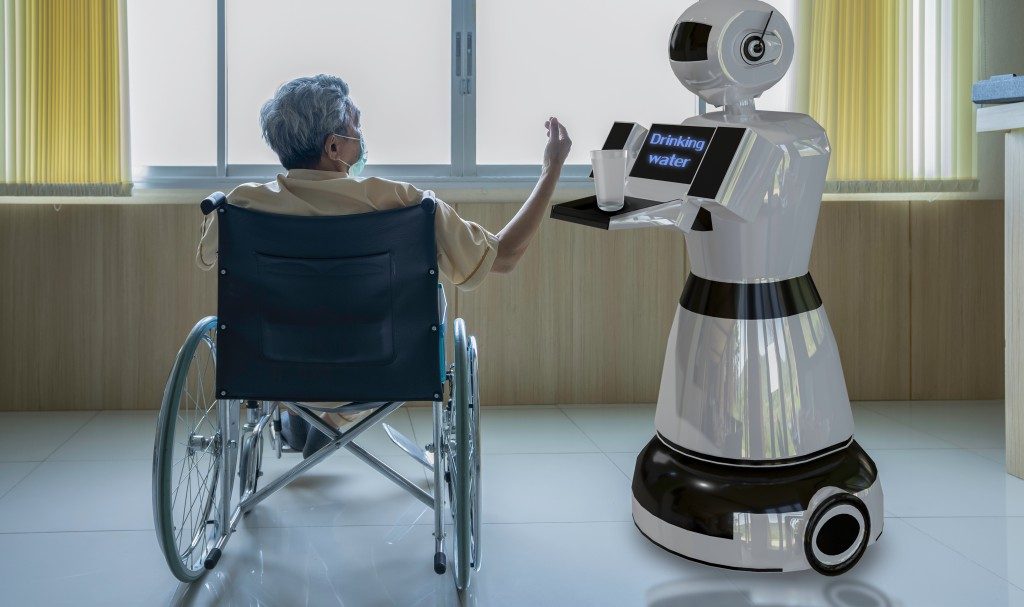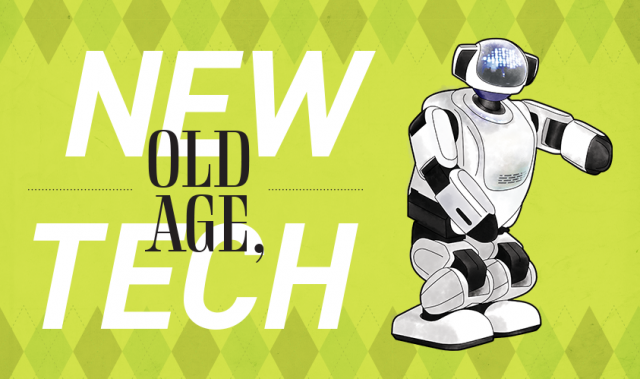
Asian Scientist Magazine (Oct. 09, 2023) —In a new study, researchers have unveiled a universal model that sheds light on the intricate relationship between ethical perceptions and the acceptance of care robots among older adults, family caregivers, and care workers. It represents a significant step towards harnessing the potential of care robots for aging persons worldwide. The study was published in Archives of Gerontology and Geriatrics.
Japan, a nation grappling with declining birth rates and aging population, is facing a looming crisis in the caregiving sector. The exponential growth of the elderly population has resulted in a shortage of caregivers. To address this challenge, researchers and developers are looking at care robots as a potential solution.
While care robots hold great promise in providing essential home care services to the elderly, their widespread acceptance has been hindered by ethical concerns. These concerns revolve around issues such as personal information security and privacy protection.
Recognizing the need for a universal model that could help bridge the gap between ethical perceptions and the adoption of care robots, an international team of researchers embarked on a cross-sectional study.
Led by Professor Sayuri Suwa from the Chiba University in Japan, the study encompassed surveys among older individuals, their family caregivers, and professional care workers. The questionnaire explored a range of ethical issues potentially affecting their willingness to embrace care robots.
“Today, in Japan’s super-aged society, various care robots, including monitoring cameras, have been developed and marketed to compensate for the shortage of care staff and to alleviate their stress. However, there are no discussions among users—older people, family caregivers, and care staff—and developers regarding the willingness to use care robots, the protection of privacy, and the appropriate use of personal information associated with the use of care robots,” said Professor Suwa in an article published in EurekAlert. “The desire to improve this situation and to promote appropriate utilization of care robots beyond Japan was the impetus for this research.”
In total, the researchers analyzed 1,132 responses, comprising 664 from Japan, 208 from Ireland, and 260 from Finland. Astonishingly, the willingness to adopt care robots varied significantly across the three countries, with Japan leading the list at 77.1%, followed by Ireland at 70.3%, and Finland at 52.8%.
To provide a comprehensive understanding of the factors influencing the acceptance of care robots, the research team constructed a conceptual model based on the survey data. This model encompassed ten key items grouped into four overarching domains. These include acquisition of personal information, use of personal information for medical and long-term care, secondary use of personal information, and participation in research and development.
The model underwent meticulous refinement using Akaike’s information criterion (AIC) to achieve superior performance. Once perfected, it was applied to each of the three countries. Remarkably, the model demonstrated its universal applicability. It explained the correlation between ethical perceptions and the integration of care robots in home care settings, even across nations with diverse geographies, demographics, cultures, and healthcare systems.
Discussing the implications of their pioneering research, Professor Suwa emphasized the significance of involving potential users in the development process of care robots.
“From our results, we can infer that social implementation of care robots can be promoted if developers and researchers encourage potential users to participate in the development process, proposed in the form of a co-design and co-production concept. We hope that the process of developing care robots will be improved to contribute to human well-being in a global aging society.”
—
Source: Chiba University ; Image: Shutterstock
The article can be found at: Developing a Model to Explain Users’ ethical perceptions regarding the use of care robots in home care: A cross-sectional study in Ireland, Finland, and Japan
Disclaimer: This article does not necessarily reflect the views of AsianScientist or its staff.












